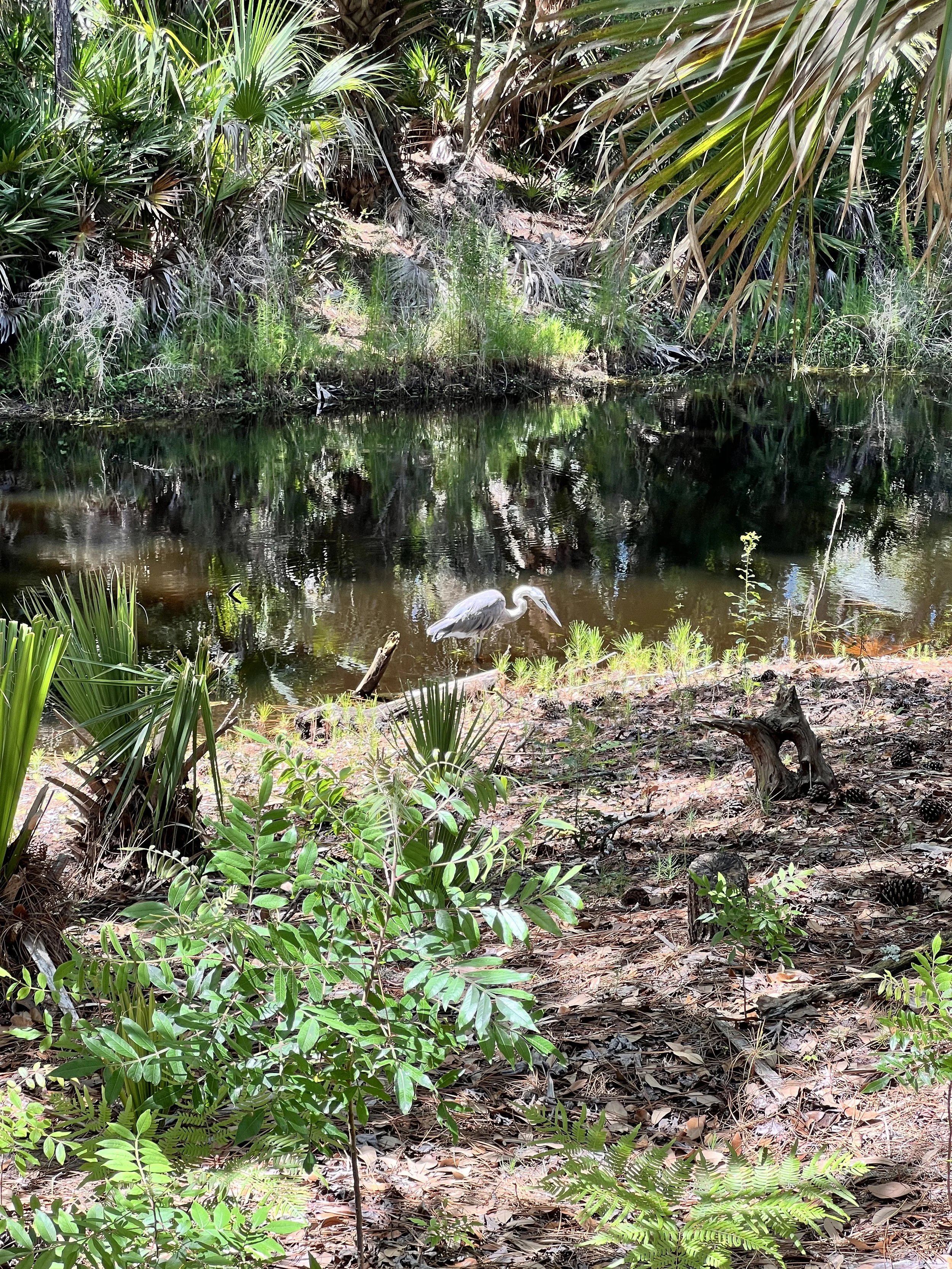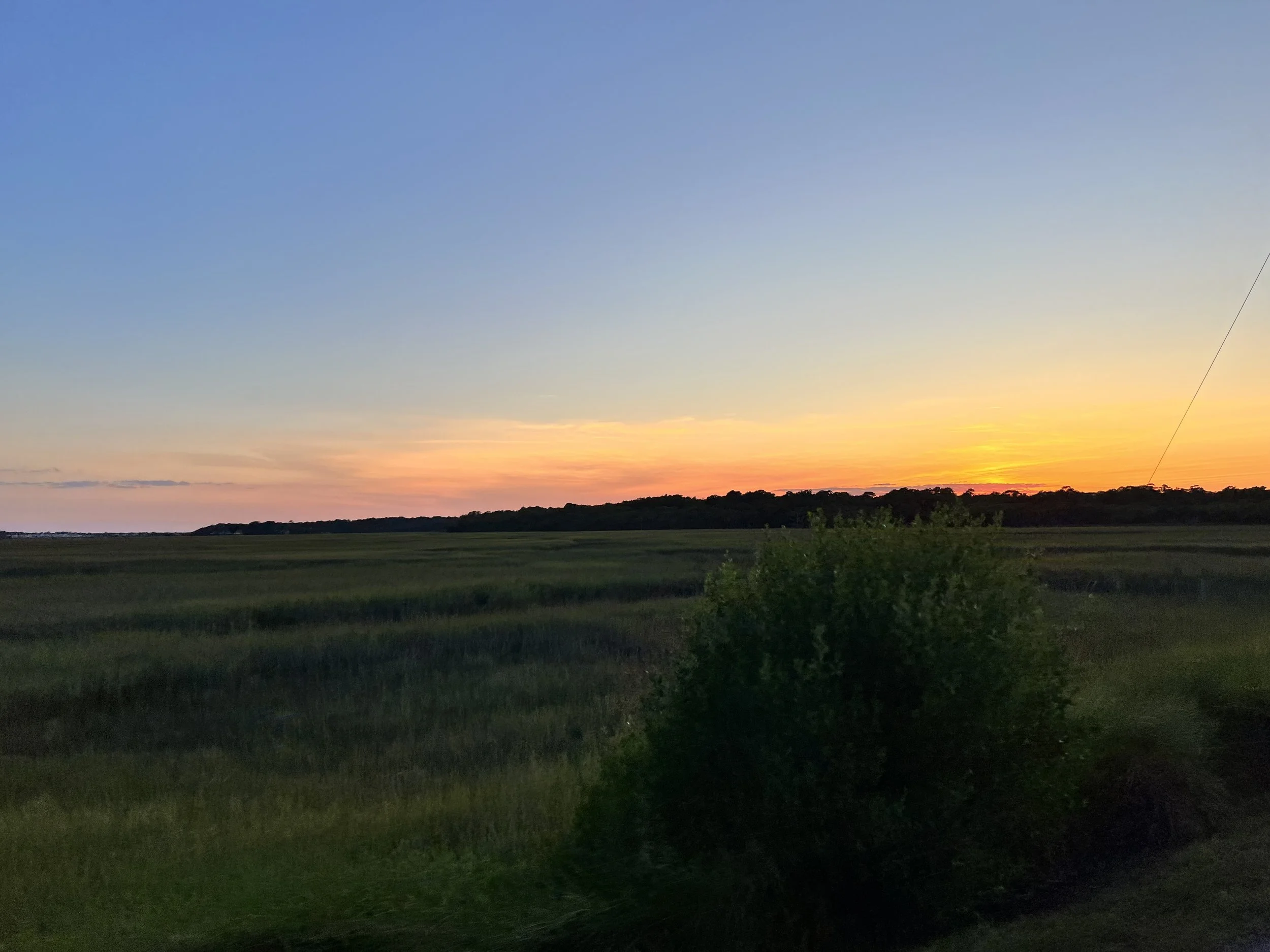Keeping Familiar in the Foreign
I sometimes struggle when I’m in new places or among new people. I know that keeping hold of a few familiar things to me help me embrace the new.
My family and I are on vacation for a couple of weeks. We are traveling to South Carolina and then taking the long way home through Virginia to see Shenandoah National Park.
We were driving through Hunting Island State Park yesterday. This place looks like a jungle. It felt completely foreign.
I love hearing people’s stories so when I am somewhere new, I always tend to think of those who have come before me - what were their stories? As a white woman who’s ancestors came from England and Scotland mostly, my mind wondered to the experiences of my ancestors.
I kept thinking of those who immigrated from Europe, where there are no trees, and how they would have felt in this swampy jungle. I’m in awe of the towering cedars and the underbrush palms.
I was reminded of those who were forcibly immigrated through the slave trade and how they would have felt. Many who were brought for their expertise in rice growing would have been familiar with this climate - an experience completely different than that of my ancestors.
I wondered what was the balance between this adapting to the completely foreign and holding to the familiar. The museum at Hunting Island State Park mentioned that Hunting Island was designated as a segregated beach for this area. It showed photos and illustrations of Gullah families who would picnic and play on the beach as one of the few that was available to them. I was interested to learn more about the Gullah culture and families.
I learned how central this culture was to much of what we consider US culture today. Especially in music and language.
It was the ability to hold on to the familiar in this new foreign land that was central to the Gullah culture. In learning about the Gullahs, I thought of the Babylonian Exile that occurred in the bible and about the prophet Daniel. Understanding what this meant to the writers of our scriptures gives us richness to these stories as they relate to our own stories so stick with me just a bit. The Babylonian exile began in 538 BCE when Nebuchadnezzar’s legions breached Jerusalem, destroyed the temple, and exiled Jews across the empire.
Daniel’s story in Daniel 1 & 2 mirrors the story of the Gullah. Daniel is allowed to retain his own culture. He holds on to the familiar.
But Daniel resolved that he would not defile himself with the royal rations of food and wine, so he asked the palace master to allow him not to defile himself. Now God granted Daniel favor and compassion from the palace master. (Dan 1:8-9)
This retention of Daniel’s culture brings him and even his captor’s blessings.
In every matter of wisdom and understanding concerning which the king inquired of them, he found them ten times better than all the magicians and enchanters in his whole kingdom. (Dan 1:20)
Daniel and the Gullah both hold on to the familiar in the foreign. God worked through Daniel’s oppression, and hearing the story of the Gullah and the reaching impact of their culture on my own present American experience is striking. God worked through their oppression also. I do not believe that either of these stories of suffering was ordained but that even in the worst situations, God will work in them. This is not to absolve the contiuing persecution and oppression of others, but instead to look to our own pasts with confidence that even if we are persecuted or the persecutors, God can work through us. We should be confident to see the places we were wrong, where our ancestors were wrong that we can change our actions.
The stories of my ancestors, from England and Scotland, who would have been in such foreign landscapes and places are not cheapened, but enriched, by also remembering the stories of others, like the Gullah people. In hearing, imagining and remembering both, I can see my own experiences better. I am compassionate to hearing the stories of others and my own stories in theirs.
If you’ve never heard of the Gullah people, I encourage you to learn about them. This website has many stories told on videos by Gullah peoples, not second hand.
https://www.gullahmuseumhhi.org/
Have you read the story of Daniel in the first couple chapters of that scripture? I encourage you to check it out also. Do you see similarities? Differences? What are the echos of God’s work?



